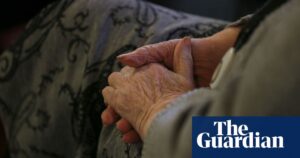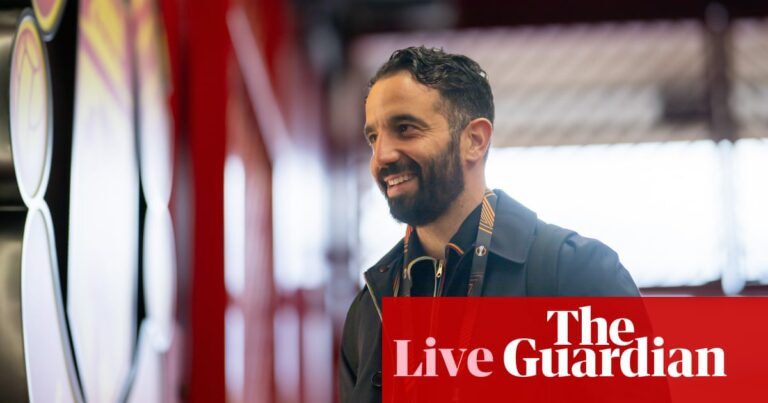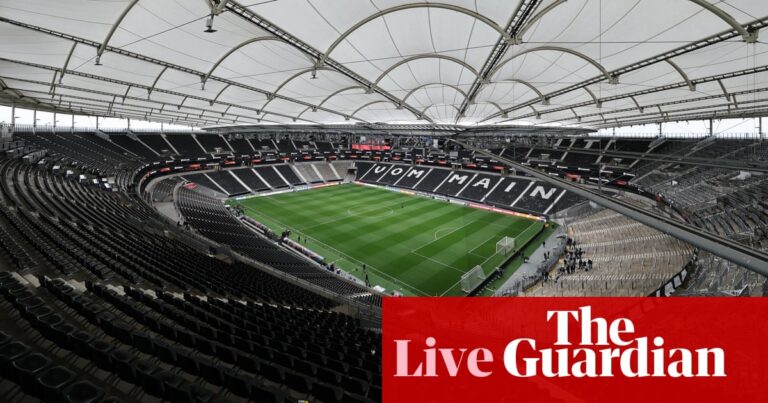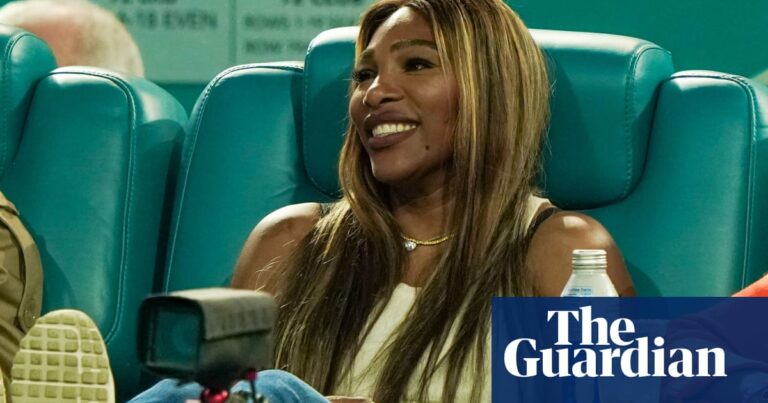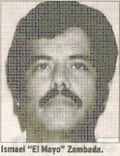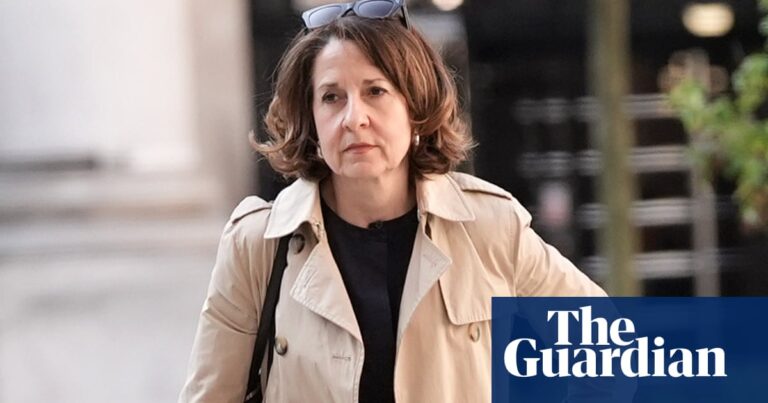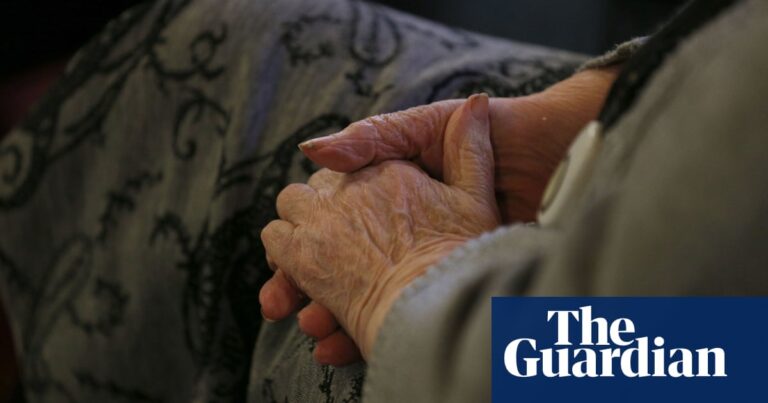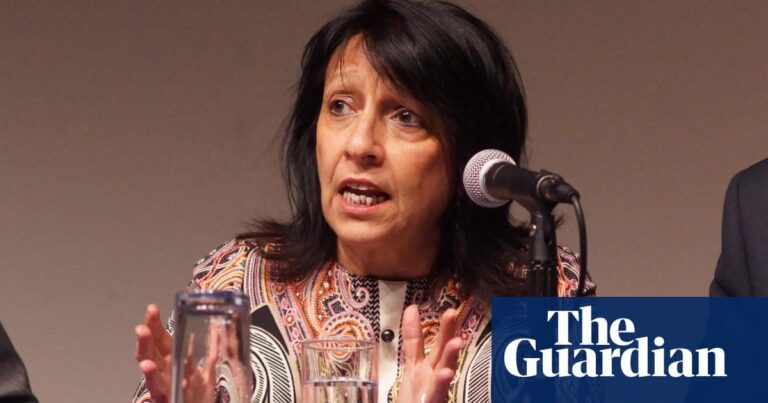As Andy Murray spoke in the immediate aftermath of the most painful moment of his career, his defeat to Roger Federer in the 2012 Wimbledon final, the tears came quickly. He had been so close to winning his first grand slam, yet it also felt as far away as ever. While his legendary contemporaries were racking up major titles, he just could not figure out how to let go of his inhibitions and get over the line. He had lost all four grand slam finals he had contested, while winning only one set.
But the summer of 2012 was like no other. Three weeks after the players had departed the All England Club, they had returned. The plain green backboards had been replaced by a loud, bright purple, and instead of the traditional all-white attire, matches across the grounds were a technicolour vision. The London 2012 Olympic tennis event at Wimbledon had begun.
The men’s singles produced an identical final to Wimbledon proper, but this time Murray rose to the occasion. He played one of the greatest matches of his career, demolishing Federer 6-2, 6-1, 6-4 to win his first Olympic gold.
The Olympic Games, for Murray, were the start of everything and the belief that victory generated sustained him for years to come. As that summer ended, Murray defeated Novak Djokovic in five sets to win his first grand slam title at the US Open. A year later, he would return to Wimbledon and become the first British man in 77 years to win the title.
Now the Olympics will also signify an ending. On Sunday in Paris, Murray will begin the final tournament of his career before hanging up his racket. As he continues to heal from back surgery, Murray will only compete in doubles alongside Dan Evans.
As ever, he is not here simply to participate. In a doubles draw filled with inexperienced singles players and unfamiliar pairings, there is a good opportunity for the GB duo to win matches if Murray’s back holds up. They will be favourites in the first round against Japan’s Kei Nishikori, a former top singles player who has been mostly sidelined with injuries for the past few years, and Taro Daniel.
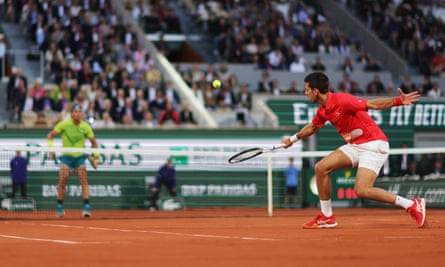
The Olympics could prove a significant moment in many other journeys, particularly Rafael Nadal’s. Since he was able to return to competitive tennis during the clay season, Nadal, a gold medallist in the singles in 2008 and the doubles in 2016, has repeatedly said the Olympics would be one of his priorities this year and he skipped Wimbledon to ensure he was as physically sound as possible for Paris. After the Games, he will decide whether he should continue his career or search for an exit plan.
With Nadal being largely inactive for the 16 months preceding the clay season, he is unseeded in every tournament he plays and at the mercy of the draws to avoid top players and build rhythm. The draws have not been kind. After meeting the eventual finalist Alexander Zverev in the first round of the French Open, Nadal could this time face Novak Djokovic in the second round in what would be the 60th instalment in one of the greatest sporting rivalries.
Before that, Nadal will have to get through a tough opening match against Marton Fucsovics of Hungary and overcome apparent discomfort in his thigh. The Spaniard will also be one half of the type of spectacle that only the Olympics can bring as he competes alongside Carlos Alcaraz in a symbolic partnership between Spain’s legendary 38-year-old 14-time French Open champion and its 21-year-old reigning champion at Roland Garros.
In the absence of Jannik Sinner, Alcaraz, the second seed, will be the singles favourite as he tries to complete an astonishing trio of titles after his triumphs at the French Open and Wimbledon. Djokovic may be the second favourite after being dominated by Alcaraz in the Wimbledon final, but with two more weeks of recovery following his knee surgery and the jeopardy of knowing this is surely the last time he will be a top contender to win the gold medal he craves, he will be dangerous.
The biggest question surrounding the women’s draw is simple: can Iga Swiatek continue her dominance on clay and win an Olympic gold? The Pole has already put together a historic run at Roland Garros, winning the title in four of the past five years while building a 21-match winning streak at just 23 years old. The absence of Aryna Sabalenka and the late withdrawal of Elena Rybakina due to bronchitis only increases her chances of victory. But as such a heavy favourite in the unusual circumstance of also representing her country, the pressure is on.
Source: theguardian.com





